My car was damaged while it was at the repair shop, and they
won’t take responsibility. What do I do?
I have heard that refrain many times, and I have also acted
as a consultant to attorneys and insurance companies in cases involving damage
and responsibility. The truth is, “who’s
responsible” is often a gray area. I
can’t possibly cover every situation in a short blog, but I will describe some
common occurrences:
The first situation is where a car is worked on and it’s
damaged as a direct, obvious result. You get an oil change, and they forget to
put the oil back in. Five miles from the
shop, your engine fails. This is a
fairly clear-cut situation, and even if the shop denies responsibility you can
typically make a claim directly against their insurance carrier in most states.
How would you find the insurance carrier? In states where insurance is required you’d get
that information from the motor vehicle department, or whatever state agency
licenses repair shops. There are some
states that don’t require insurance, and some shops that don’t carry it. When interviewing a prospective repair
facility for your car, it’s wise to ask if they have liability insurance. Any reputable business will.
If you find the shop lacks insurance I'd think long and hard about leaving my car there for service. You may have come to this blog wondering how to hold a shop accountable, but the shoe could be on the other foot, in a big way, if something goes bad wrong. What if the mechanic goes on a test drive, gets going fast, and hits and kills a mom and her kid? The shop has no insurance. The mechanic is dead. Who do you think the father is coming after? You.
If you find the shop lacks insurance I'd think long and hard about leaving my car there for service. You may have come to this blog wondering how to hold a shop accountable, but the shoe could be on the other foot, in a big way, if something goes bad wrong. What if the mechanic goes on a test drive, gets going fast, and hits and kills a mom and her kid? The shop has no insurance. The mechanic is dead. Who do you think the father is coming after? You.
If you doubt that can happen just remember the recent news story where a movie star and his mechanic died on a test ride in a high performance Porsche. Responsibility can easily fall back on you when someone else is driving, because it's your car.
A more common - and less awful - claim is for what I call “lot
damage.” My car got dented while it was here! When a vehicle arrives at Robison Service, we walk around the car with the owner and
look for pre-existing damage. If I see a
scratch or dent I’ll ask if the owner wants it fixed. Most times, arriving cars are photographed
for “before and after” documentation of the repair process. If a shop does that, you should not
have a problem determining if a dent is new or old. Obviously, if the car got dented at the shop,
they should take care of it. Mishaps do
happen, and the biggest issue is establishing whether a dent or flaw is truly
new.
There is an important exception to this rule. Some shops are located in places where the
only parking is a shared public lot.
When you park in a public lot to have your car repaired, the shop doesn’t have
any more responsibility for your vehicle than another store would if you parked to buy a pair of shoes.
What if the service manager takes your car on a test drive
and hits a deer? What if he’s at a
stoplight and a texting teen rear ends the car?
What if lightning hits a tree in the parking lot, and it falls on your
car? In each of those cases, the damage may not be the shop’s responsibility
because it occurred through causes outside their control. In that event your comprehensive insurance
would typically pay for the loss.
In general, when you leave a car for repair, you create what lawyers call a bailment, where the car is the bailed property and the shop is the bailee. Bailees have a duty to protect property in their care, but it's not absolute. Shops are held to what’s called a “reasonable
standard of care." These real-life examples are meant to show how the standard does not
extend to every possible situation where damage may occur. Some shops have what's called Direct Primary
converge where the shop insurance assumes primary responsibility for customers
cars no matter what. That sort of coverage is uncommon, but mandatory in a few
states. Such policies make the shop
insurance pay for any of the examples I cited.
Here's a less obvious example. Let’s say you have 120,000 miles on your
vehicle. The automatic transmission fluid has never been changed, and you
decide it’s finally time to do it. A
week later, the transmission blows. You
call the shop, and they say, “That’s too bad.
You waited too long to change it.”
You think they did something wrong, but what? Assuming the job was done correctly, the
shop’s failure might be in the fact that they didn’t warn you that something
like this could happen, after disturbing something that had been neglected so
long. That’s why we are always careful
to warn people of possible complications in a job. When we go to put a bulb in a car, and the
fixture might break, we warn the owner of the possibility beforehand, not
after.
In some cases, failure to warn the owner would make the shop
at least partly responsible for the failure through a legal theory known as
contributory negligence. The owner
contributed to the failure by neglecting his regular service. The shop contributed by failing to warn the
owner that a service at this late date could lead to failure tomorrow. Both have some responsibility, and it’s up to
a judge and state law to decide how that’s apportioned.
What about more serious damage? Here's a real example:
A restoration shop was in an old mill with multiple
tenants. A fire started in another
tenant's building, and burned the whole thing.
A dozen cars were inside. The shop
had insurance but it was limited to $200,000 and the vehicles in the fire were
worth $2,000,000. The owners who had
insurance were paid by their own policies, and the owners who didn’t have
insurance got 10% settlements from the shop’s insurance.
The owners of those cars could have sued the shop owner, but
their claims would be weak, because the fire was not his fault, and he didn’t
have anything left to give them anyway.
All of them (shop owner too) could sue the owner of the business where
the fire started, but he was bankrupt too.
The moral of that story is, carry insurance on your car, so your policy
pays and let them sort out the ultimate liability between companies.
Assuming someone else will be responsible is a troubling
trend in America today, and frankly, it’s dangerously misguided in many
situations. A repair shop is responsible for many
things that may happen to your car while they have it, but they are not responsible for every possible thing. That’s an important distinction.
Reading the examples above you might think I am telling you
why shops are not responsible for damage. That’s not my intent at all. There are many situations where a shop is and
should be responsible for damage to a car, and I’m well aware that damage
happens when cars are in the shop. But
at the same time, there are many other situations where shops are not
liable. That’s why you always want to
have your own coverage on a car, even if it’s in storage.
Disclaimer: I’m not a
lawyer and I don’t play one on TV. I’m a
service manager who has worked as an expert for both cars owners and insurance
companies to determine causes of damage and responsibility.
John Elder Robison is the general manager of J E Robison Service, independent restoration and service for Land Rover, Jaguar, Mercedes, BMW, Bentley, Rolls Royce, and other fine motorcars in Springfield, MA Find him online at www.robisonservice.com or on the phone at 413-785-1665



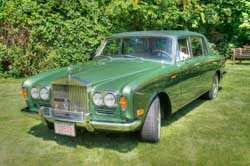
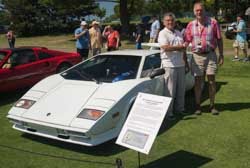







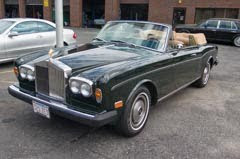


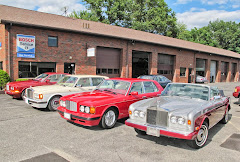



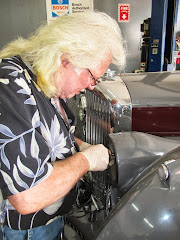

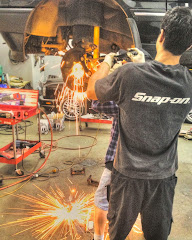
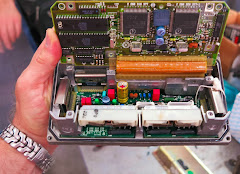




No comments:
Post a Comment